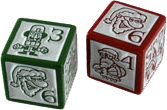Fifteen years ago, today, some writer for a local newspaper penned the following.
He was kind of young, when he wrote it. And a lot of stuff he cranked out in those days was pretty bogus. He was sorta full of himself then, you know. But he tried.
Anyway, this piece wasn’t so bad…I can still relate to it, anyway, today.
Fifteen years later.
A quarter of a century after the murder of John Lennon.
****
LENNON’S LIFE, LYRICS TOUCHED MANY LIVES
By John Kovalic
Wisconsin State Journal
About five years ago, I walked out of Paul McCartney’s “Give My Regards to Broad Street” and into the offices of the UW student newspaper, the Daily Cardinal, to type up my careful, considered review of the movie.
“Somebody,” I wrote, “shot the wrong Beatle.”
In the days that followed, as the Cardinal devoted what I’m still convinced were special issues – but may have been merely entire pages – to my hate mail, I decided to crawl underneath my desk and rethink my position. Friends told me Chicago Tribune columnist Bob Greene had become so violently incensed with my review that he stopped writing about Elvis Presely for a full five minutes to compose a column on how young people these days didn’t understand Paul McCartney.
The Bob Greene reports may have been spurious – I have yet to track down any such column – but if I ever get around to penning my autobiography (tentatively titled “I Wandered Lonely as a Clod”), I’ll probably gloss over what later came to be known as “The Broad Street Affair.”
Instead, I’ll try to focus on McCartney’s recent world tour. Specifically, on a three-song medley he performed in the middle of a block of Beatles numbers at a mobbed Soldier Field in Chicago.
I can’t even remember if he introduced the medley, yet its songs were unbearably wrenching: “Help!” “Strawberry Fields Forever,” and “Give Peace a Chance.”
Songs John Lennon wrote.
To be honest, McCartney’s versions of “Help!” and “Give Peace A Chance” didn’t strike me as anything to write home about at the time. They seemed rushed, and slightly harried. Maybe not dishonest, but not from the heart.
But the emotions I felt as he moved into the opening chords of “Strawberry Fields” were overwhelming.
Maybe it was the deferred hope diffused in “Strawberry Fields” that McCartney captured that night. Or perhaps it was simply his relative difficulty in relating to the lonely pain of “Help!” or the subdued urgency of “Give Peace a Chance” that made the middle song so powerful by comparison.
But – at that moment, during the opening chords of an abbreviated song he hadn’t even written – McCartney transformed his performance from Oldies Concert to Happening.
There seems to be a division among some Beatles fans, between Lennon supporters and McCartney apologists. It’s as if nobody can quite accept the fact that the band that produced “And Your Bird Can Sing” also put “Good Day Sunshine” on “Revolver.”
Every other radio station under the sun will be playing blocks of Lennon’s music today, on the 10th anniversary of his murder. “And Your Bird Can Sing” will undoubtedly be among them.
And at some point, there’ll be a Lennon song – it may be this or any one, it depends on how I’m feeling at the time – that gives me pause, that makes me think back to a cold day during my first year at the University of London, when I couldn’t believe the news.
At the time, I was a staunch McCartney apologist. In a sense – a few movie reviews to the contrary – I still am.
But when I heard the news, I felt cold.
Ten years ago, the BBC pulled its regularly scheduled evening broadcasts in the wake of the murder, and ran the movie “Help!” instead.
At some point today, a radio station will play a song. And I’ll start thinking about how one man can touch so many lives.
(c) 1990, Wisconsin State Journal



